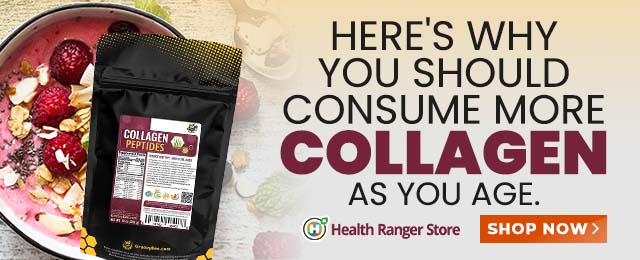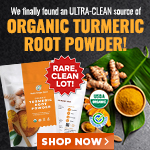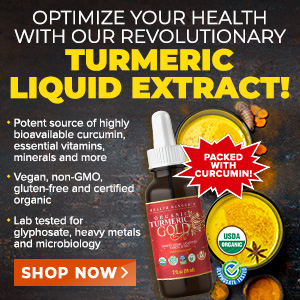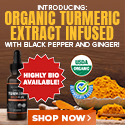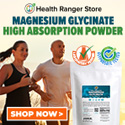Eat more of these foods to help balance your body's alkalinity and prevent cancer
Thursday, February 11, 2016 by: David Gutierrez, staff writer
Tags: pH balance, alkalinity, cancer prevention

(NaturalNews) Many people have heard of the "pH miracle plan" for restoring and preserving health, but are unclear on exactly which foods are considered "acidic," and which are considered "alkaline."
The "pH miracle" is an idea developed by researcher Robert O. Young, and introduced in his 2002 book of the same name. Young suggested that the body's natural pH is slightly alkaline, but that the modern diet is high in foods that tend to produce an acidic effect in the body. These foods, such as processed sugar, dairy, meat, junk food, alcohol and caffeine, shift the body's pH towards acidic. This causes acid wastes to build up in the body's organs, producing a variety of diseases, including cancer.
"The focus for preventing and reversing cancer must be on maintaining the alkaline pH of the body fluids, and a recognition that cancer is a systemic acidic condition," Young has written.
Top five alkaline superfoods
Unsurprisingly for anyone who follows the most current dietary advice, the most alkaline foods tend to be fruits, vegetables and oily foods, such as avocados, nuts and olives. These foods, by no coincidence, also tend to provide numerous other health benefits. The following five foods are considered among the most alkaline-promoting:Cabbage, in addition to its alkaline nature, has been shown to fight infections and cancer. If you boil cabbage, be sure to save the water and use it in soup, sauces, or even as a beverage. For an extra health boost, eat your cabbage fermented in the form of sauerkraut (make it at home, or buy it in the refrigerated section so it hasn't been killed!).
Olive oil, made famous by proponents of the Mediterranean diet, is known to be high in heart-healthy monounsaturated fatty acids. It is also high in vitamin E, which has been shown to reduce the symptoms of hot flashes and may benefit heart health as well.
Flax seeds and flax seed oil have also gained quite a bit of attention, largely for their high content of omega-3 fatty acids. Omega-3s, which are thought to be too scarce in the Western diet, have been linked with improvements in cholesterol and blood pressure, among other benefits. Flax seeds are also high in lignans, which help fight cancer and improve kidney function. Flax seeds can be eaten whole or ground, but many of the nutrients are best absorbed from the ground seeds or the oil.
Melons are incredibly nutrient rich, containing high levels of dietary fiber, potassium, folic acid and vitamins A, B6 and C. They have been shown to help prevent heart attack and stroke, perhaps by helping thin the blood. Watermelon is also considered an alkaline food.
Buckwheat is relatively uncommon in the Western diet, but functions as a highly effective wheat substitute for those trying to reduce their intake of the latter grain. Buckwheat has been shown to help prevent strokes, and ease the discomfort of hemorrhoids and varicose veins.
More alkaline diet tips
Other alkaline foods include alfalfa sprouts, avocado, broccoli, brussels sprouts, cauliflower, celery, chives, cucumber, garlic, grapefruit, green beans, green peas, leeks, lemon and lime, lettuce, millet, onion, parsley, pears, pumpkin, radishes, sesame seeds and paste (tahini), soy (beans, sprouts and products), spinach, tomato, wild rice and zucchini.According to Young, the average person's diet should consist of 80 percent alkaline foods, such as those listed above, and only about 20 percent acid foods, such as meat, dairy and refined carbohydrates.
Young also recommends the consumption of alkaline water, with a pH of between 9 and 11, to help dissolve the acid wastes that have built up in the body over years of eating an excessively acidic diet. He suggests the use of water ionizers to produce this water.
Sources for this article include:
HealthyFoodHouse.com
pHMiracleLiving.com
pHMiracleLiving.com
pHMiracleLiving.com
PH balance at FETCH.news
Get independent news alerts on natural cures, food lab tests, cannabis medicine, science, robotics, drones, privacy and more.
Take Action: Support Natural News by linking to this article from your website
Permalink to this article:
Embed article link: (copy HTML code below):
Reprinting this article:
Non-commercial use OK, cite NaturalNews.com with clickable link.
Follow Natural News on Facebook, Twitter, Google Plus, and Pinterest
- Fauci is back in the limelight, and he’s busy promoting a future COVID or FLU pandemic
- Tulsi Gabbard leads charge against the Biden regime’s global censorship of the 'Disinformation Dozen'
- DEADLY FLU JAB WARNING: New flu vaccines make recipients 27 PERCENT MORE LIKELY to catch the flu
- Aerosolized bioweapons? Strange “diploid biomasses” falling out of the sky in Florida captured under the microscope
- New study links mRNA vaccines to GENETIC CHANGES - and not the good kind
- How Israeli military-connected corporations are secretly controlling your online privacy
- Idaho Gov. Brad Little signs Medical Freedom Act banning vaccine mandates
- Analysis: The coming economic collapse, a mass uprising and Trump's three secret weapons to halt the growing revolt
- Kiss Your Genetic Privacy Good-Bye! 23andMe Gets Green Light to Sell Your Intimate Genetic Details to Anyone They Want
- U.S. lawmakers investigate Meta over alleged China collaboration
- DEATH BY DOCTOR: Why and how doctors are now PAID TO KILL their patients
- Tulsi Gabbard takes aim at censorship: Justice for the ‘Disinformation Dozen’
- Widespread social and economic unrest: Steve Quayle issues urgent financial warning of imminent asset collapse in new interview with Mike Adams
- A comprehensive guide to DANDELIONS, an ancient herbal medicine and superfood
- Curcumin’s ancient healing power supercharges muscle recovery, and its effects are compounded with anti-inflammatory foods and supplements
- Mike Adams releases country western hit single: Goin’ Back in Time is Comin’ Home
- CIA Official Terry Adirim TERMINATED for her role in pushing unlawful vaccine mandates on the military
- Trump’s EPA reviews fluoride safety amid growing concerns over risks to children’s health
- Aerosolized bioweapons? Strange “diploid biomasses” falling out of the sky in Florida captured under the microscope
- Analysis: The coming economic collapse, a mass uprising and Trump's three secret weapons to halt the growing revolt
- Kiss Your Genetic Privacy Good-Bye! 23andMe Gets Green Light to Sell Your Intimate Genetic Details to Anyone They Want
- Widespread social and economic unrest: Steve Quayle issues urgent financial warning of imminent asset collapse in new interview with Mike Adams
- Defunding DEADLY mRNA jabs: Government funding for mRNA technology being scrutinized and sidelined until proven "safe and effective" for real
- CLOT SHOT PLANDEMIC UNFOLDING: Fibrous, rubbery clots caused by covid injections have prion-like seeding activity
- European Court of Justice: Healthcare professionals who promoted or administered COVID-19 vaccines are CRIMINALLY LIABLE for any harm caused
- Mike Adams releases country western hit single: Goin’ Back in Time is Comin’ Home
- DEATH by VACCINE or face PRISON time: Canadian Freedom Convoy leaders CONVICTED for protesting forced vaccination during the Covid Plandemic
- Newly released JFK files reveal Pentagon's role in creating Lyme disease and covid in the same lab
- “Project Aldrin”: Senate probes Meta's alleged censorship dealings with China
- How Israeli military-connected corporations are secretly controlling your online privacy
- The hidden war above: Chemtrails, HAARP and the battle for planetary control
- Federal employees whine over DOGE's new directive requiring them to do a 5-point summary of weekly accomplishments
- FBI imposed gag order on agents to silence Hunter Biden laptop truth before 2020 election, new chat logs reveal
- Tulsi Gabbard leads charge against the Biden regime’s global censorship of the 'Disinformation Dozen'
- U.S. approves new Russian ambassador as diplomatic thaw continues
- I Want My Bailout Money – new song released by Mike Adams
- Newly released JFK files reveal Pentagon's role in creating Lyme disease and covid in the same lab
- Mike Adams releases country western hit single: Goin’ Back in Time is Comin’ Home
- Dr. Mike Yeadon releases 15-minute testimony - WATCH - about genocidal intent of COVID “vaccines”
- The Health Ranger releases “Vaccine Zombie” song and music video, using AI-animated zombies for the music video
- California's social media censorship law struck down: A victory for free speech or a threat to online safety?
- EPA advisor admits the agency is funneling billions to climate groups ahead of Trump’s return to White House
- Rep. Nancy Mace introduces bill to ban biological males from female facilities on federal property
- OpenAI whistleblower who dissented against how the company trained ChatGPT found dead
- Survival 101: Effective EMF blocking techniques
- Analysis: The coming economic collapse, a mass uprising and Trump's three secret weapons to halt the growing revolt
- MEDICAL BOMBSHELL: FDA admits Covid mRNA 'Vaccines' CAUSE CANCER
- CONSERVATIVES SOUND THE ALARM: Big Pharma and the Left trying to force $32 billion money grab from America’s seniors into year-end spending deal
- Florida takes a stand: DeSantis proposes permanent ban on mRNA vaccine mandates
- Sugarcane extract superior to cholesterol-lowering drugs?
- Pilots report mysterious lights 'moving at extreme speeds' across Oregon skies
- Trump reverses course on Gaza plan, says “nobody is expelling Palestinians”
- 5 Simple steps to boost your brainpower: How to strengthen executive function in a distracted world
- Trump Administration cuts 2,000 USAID jobs, places most employees on leave in sweeping reform effort
- Red Cross issues warning to stop blood plasma donations from vaccinated people
- Scientists confirm: GENIUS brain function can be spontaneously unleashed in humans without any apparent cause
- EPA advisor admits the agency is funneling billions to climate groups ahead of Trump’s return to White House
- HYSSOP: What research reveals about the health benefits of this ancient holy herb
- Two containers with completed ballots fall out of truck in Florida
- Fully vaccinated about to see “tsunami” of illness and death, warns virologist
- Global leaders unite to clamp down on “misinformation” with UN-backed Cascais Declaration
- Newly released JFK files reveal Pentagon's role in creating Lyme disease and covid in the same lab
- BREAKING: 2025 NDAA authorizes mandatory military draft of WOMEN across America… as Pentagon pursues global NUCLEAR war with both Russia and China at the same time
- Michael Yon warns of a ZIONIST TAKEOVER in Trump’s second administration
- Ozempic and Wegovy weight loss drugs are injectable LIZARD VENOM PEPTIDES that may unleash a devastating wave of organ failure… side effects align with symptoms of SNAKE BITES
- The Health Ranger releases “Vaccine Zombie” song and music video, using AI-animated zombies for the music video
- BOMBSHELL: DNA testing kits are a SCAM to develop ethnic-specific bioweapons
- Israeli soldiers accused of even more torture and abuse in the West Bank
- These 13 countries just signed an agreement to engineer a global FAMINE by destroying food supply
- NASA admits that climate change occurs because of changes in Earth’s solar orbit, and NOT because of SUVs and fossil fuels
- RFK Jr. clears key hurdle: Sen. Susan Collins backs controversial HHS nominee, signaling a new era for health policy
- Sermon 30: How Jesus reveals Caesar’s FAKE CURRENCY and FALSE AUTHORITY
Science News & Studies
Medicine News and Information
Food News & Studies
Health News & Studies
Herbs News & Information
Pollution News & Studies
Cancer News & Studies
Climate News & Studies
Survival News & Information
Gear News & Information
News covering technology, stocks, hackers, and more



"Big Tech and mainstream media are constantly trying to silence the independent voices that dare to bring you the truth about toxic food ingredients, dangerous medications and the failed, fraudulent science of the profit-driven medical establishment.
Email is one of the best ways to make sure you stay informed, without the censorship of the tech giants (Google, Apple, Facebook, Twitter, YouTube, etc.). Stay informed and you'll even likely learn information that may help save your own life."
–The Health Ranger, Mike Adams











